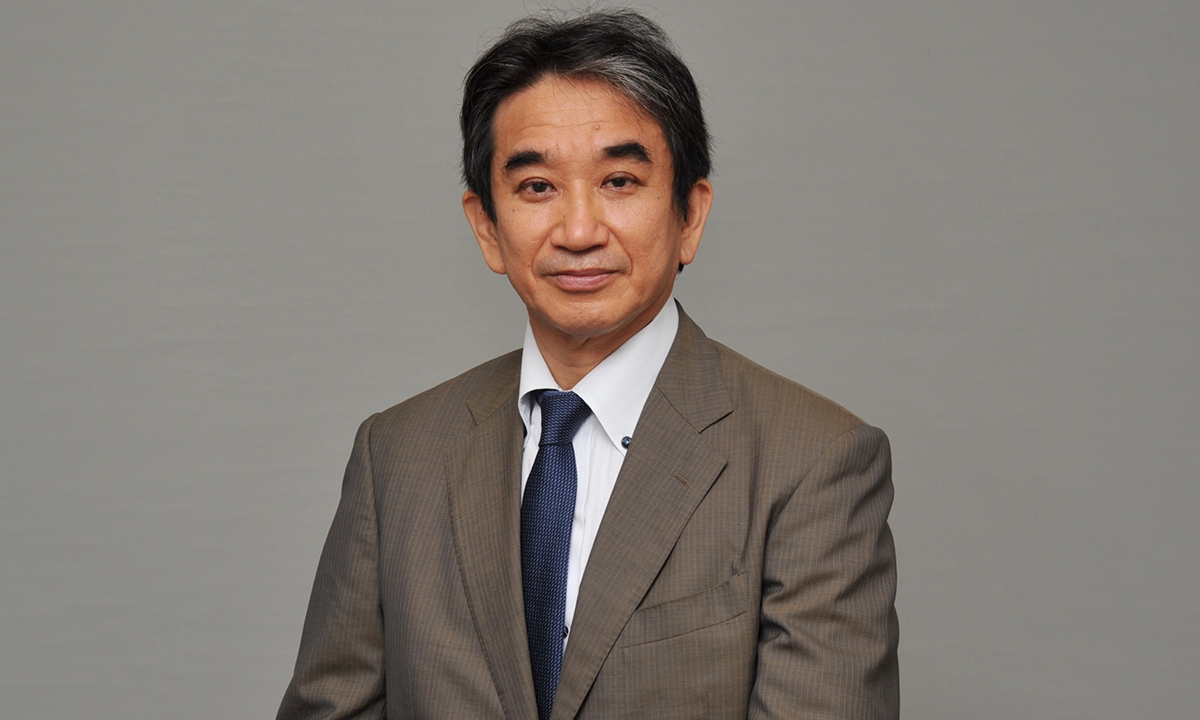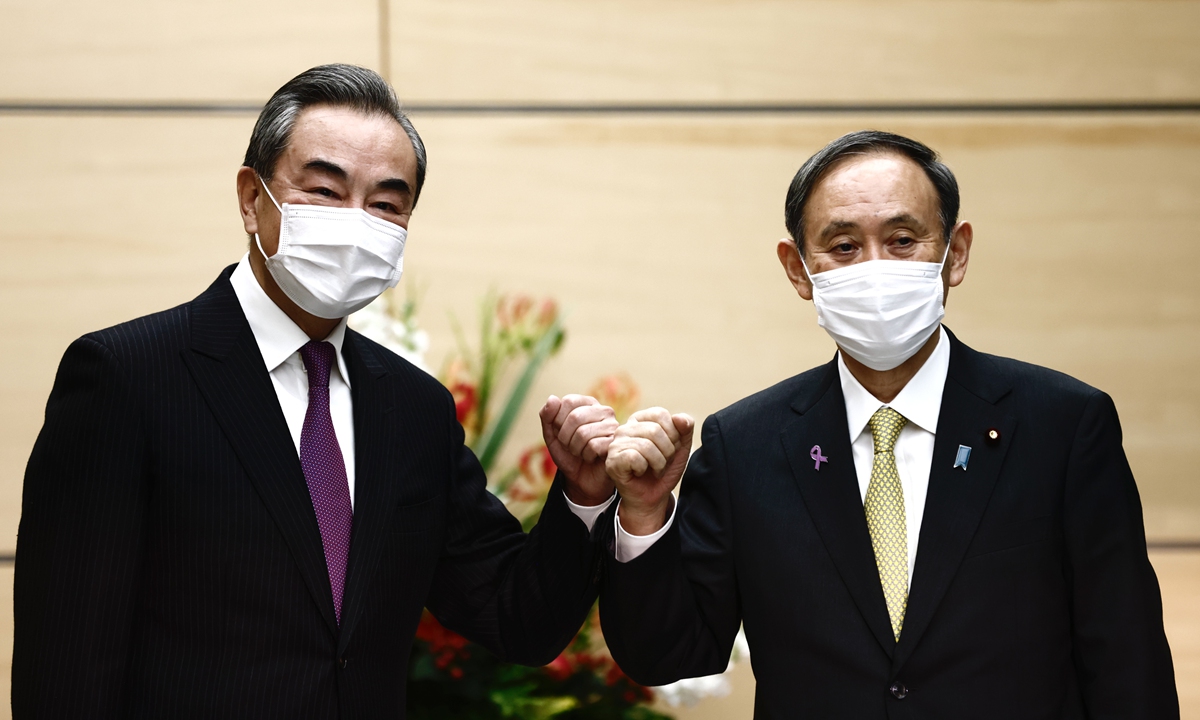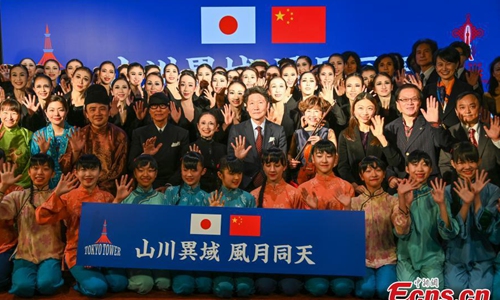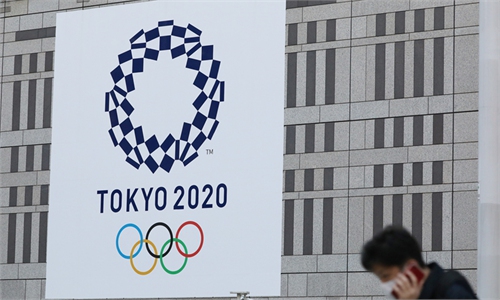EXCLUSIVE: New Japanese ambassador vows closer communication in first interview with Chinese media
New Japanese envoy vows closer exchange in first Chinese interview

Japanese Ambassador to China, Hideo Tarumi. Photo: Courtesy of Japanese Embassy in China
Editor's Note:At the end of 2020, new Japanese Ambassador to China, Hideo Tarumi, took office. On Thursday, the Global Times interviewed him, which is his first interview with a Chinese media outlet, where he reviewed the exchanges and interactions between the two countries in 2020 and looked into the future of China-Japan relations. "Japan's future depends on its China policy," which represents the view of most Japanese, he said during the interview.
GT: Can you introduce the key points of your work in China?
Tarumi: Before coming to China as Japanese ambassador, I met with many Japanese leaders in the political, economic and cultural sectors. During the meetings, I usually heard a saying that "Japan's future depends on its China policy." I think this represents the view of most Japanese.
China-Japan relations are one of the most important bilateral relationships for Japan. Although there are various concerns and positions that differ between the two countries, there is no doubt that they are neighbors that cannot move away from each other. Therefore, we can only build a stable relationship through diplomatic means. This is not, of course, to renounce justifiable claims. And what we need to do is to build a stable, candid relationship, in particular that can be communicated between the national high-level at any time. Otherwise, we cannot ensure a free flow of information. In addition, while upholding the just propositions, we should also explore as many areas of cooperation as possible and actively maintain them. In this sense, I believe it is of great significance to build a stable and constructive relationship between the two countries at a high level that can be communicated at any time.

China's State Councilor and Foreign Minister Wang Yi (left) bumps elbows with Japan's Prime Minister Yoshihide Suga (right) at the start of their meeting in Tokyo on Wednesday. Photo: AFP
GT: Japan welcomed new Prime Minister Yoshihide Suga, and US president-elect Joe Biden is scheduled to take office next year. What China and US policies will Japan take? What role can Japan play in the context of the game between China and the US?
Tarumi: Japan and the US are allies, and China-Japan relations are one of the most important bilateral relationships for Japan. China and the US and China are the world's largest and second largest economies, respectively. At a time when the world is suffering from an unprecedented COVID-19 pandemic, it is extremely important for China and the US to build a stable relationship, which is not only in line with Japan's national interests but also beneficial to the peace and stability of the international community.
After the new US president takes office, Japan will continue to follow the development of China-US relations and look forward to constructive coordination between the two countries.
While continuing to maintain a strong trust relationship with its ally the US, Japan will strengthen the communication with China so as to jointly shoulder its obligation to build a free and just world order on international norms.
GT: China, Japan, South Korea and other countries recently signed the Regional Comprehensive Economic Partnership (RCEP), and China said it is "actively considering joining" the Comprehensive and Progressive Agreement for Trans-Pacific Partnership (CPTPP). How do you think this interaction will affect the economic exchanges between China and Japan? In what other areas can the two countries deepen cooperation?
(The CPTPP, also known as TPP11, is the successor to the Trans-Pacific Partnership that the US government withdrew from in 2017.)
Tarumi: The significance of TPP11 lies in the promotion of high standards and balanced 21st century rules to the world. Therefore, it welcomes the attention of all economies, including China.
TPP11 has high standards in terms of market access and rules. It remains to be seen whether economies that have previously expressed interest, including China, are ready to meet their higher requirements.
The current issue is the implementation of the RCEP agreement. I hope that the agreement will have the effect, which is not only improving the environment of market access for its members including China, but also helping to improve rules such as intellectual property and e-commerce, promote regional trade and investment, and increase supply chain efficiency.
In addition, at the Japan-China foreign ministers' meeting held last month, the two sides agreed to further cooperate on agricultural trade, personnel exchanges, tourism, environmental protection and energy conservation and other areas of common interest and with the same direction.
Moreover, as major countries with shared responsibilities, we will continue to work on such important global issues such as climate change and trade.

The Tokyo Tower is lit in red as a way to show Japan's support for China's coronavirus battle in Tokyo, Japan, February 18, 2020. Japan's Matsuyama Ballet Troupe also staged show the same night to express their support. (Photo: China News Service/Lv Shaowei)
GT: In the early days of the COVID-19 outbreak, the people-to-people friendship between China and Japan was impressive. However, a public opinion survey conducted by the Beijing-Tokyo Forum this year shows that there is a contrast between the feelings of the Chinese and Japanese people. In response to this phenomenon, Chinese Foreign Minister Wang Yi said that it is "worth pondering," and you also had said that it is "necessary to think seriously." In your opinion, what efforts can China and Japan make to reverse this situation?Tarumi: Diplomacy involves state-to-state relations. Although it is controlled by their own governments, ultimately, the feelings and trust between the cross-country citizens are exactly the issues that need to be properly addressed by the foreign ministry.
According to the results of the public opinion survey, the number of Chinese who have a "good" impression of Japan has increased, while that of Japanese who have a "bad" impression of China has also increased.
In the past when the Chinese had a very bad impression of Japan, China often asked the Japanese government to take measures. The Japanese government has also made efforts, such as improving the system of attracting Chinese tourists, and earnestly carrying out various cultural and sports exchanges, and youth exchange activities. The citizens' sentiments have a fragile aspect, and many factors can be the trigger for a sudden outburst. In the future, we will, as always, make unremitting efforts to improve the Chinese people's sentiments towards Japan.
In terms of Japanese sentiment towards China, the reasons for the current situation and how to reverse it are worth pondering by Chinese officials. Of course, we are willing to work with China to think about it and make suggestions if necessary. We will do our utmost to assist China on this issue. It is our diplomats' responsibility to improve communication among the countries' foreign ministries.
In the opinion poll, about 70 percent of people on both sides said "Japan-China relations are very important."
For this reason, I believe that more people from both countries should overcome their cognitive shortcomings and emotional barriers, view each other objectively with modesty and frankness, and engage in exchanges in various fields and at various levels.
GT: Chinese public are paying close attention to Japan's plans to set a new consulate in Wuhan, Central China's Hubei Province. What is the progress? How will the new consulate facilitate Japan's work in China?
Tarumi: As for the establishment of a consular office in Wuhan, we made an application to the Chinese government in 2012. We will continue to coordinate with China in the future to make an early opening of the consulate.
Japanese consular operations in Central China's Hubei and Hunan provinces are now handled by the Japanese embassy in Beijing. The two provinces are far from Beijing, and many local Japanese expatriates hope to have a consulate nearby which would be more convenient.
The opening of the office will further facilitate the work of protecting Japanese nationals and assisting Japanese enterprises in China.
GT: What is your expectation for the development of the China-Japan relations in 2021 and beyond?
Tarumi: Only a half year after the Tokyo Olympic Games and Paralympics Games in 2021, the Beijing Winter Olympic Games and Beijing Paralympics Games will also be held. In particular, 2022 will mark the 50th anniversary of the normalization of Japan-China diplomatic relations, which will be a milestone year in the history of the bilateral relations.
Japanese Prime Minister Suga and Chinese President Xi Jinping and other top leaders of the two countries agreed to work together for the successful hosting of the Olympic and Paralympics games.
For the success of the Tokyo Olympic Games and the Beijing Winter Olympic Games, I would like to serve as a bridge as ambassador to China.
The two countries will celebrate the 50th anniversary of the normalization of Japan-China diplomatic relations in 2022. At the same time, I hope to take this opportunity to look ahead to the 100th anniversary and further expand the exchanges between the young people of the two countries who bear heavy responsibility for the development of the bilateral relations in the next 50 years. Our embassy will work hard to provide a variety of information and opportunities to deepen the mutual relationship exchanges among the young people. As the online communication has proved effective in the epidemic era, we hope to use the new tools to continue to explore and propose new modes of communication.




